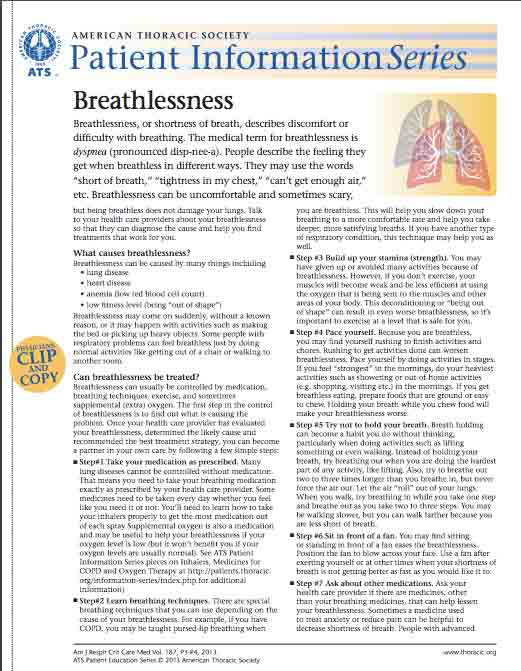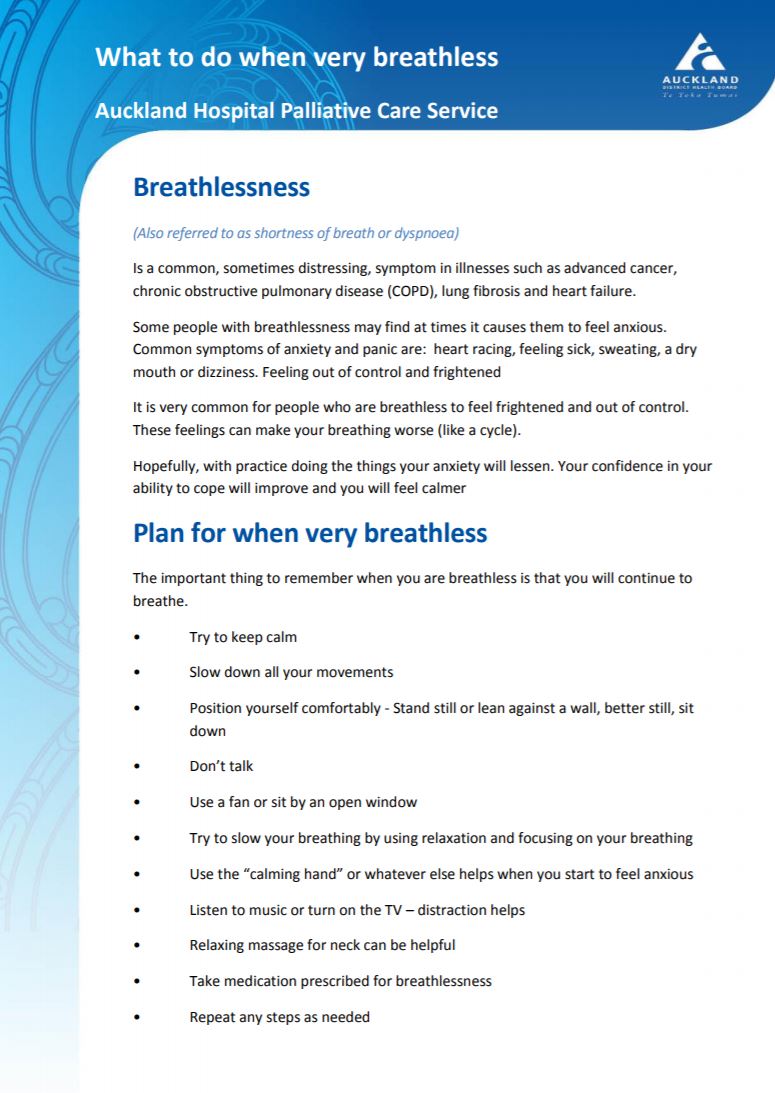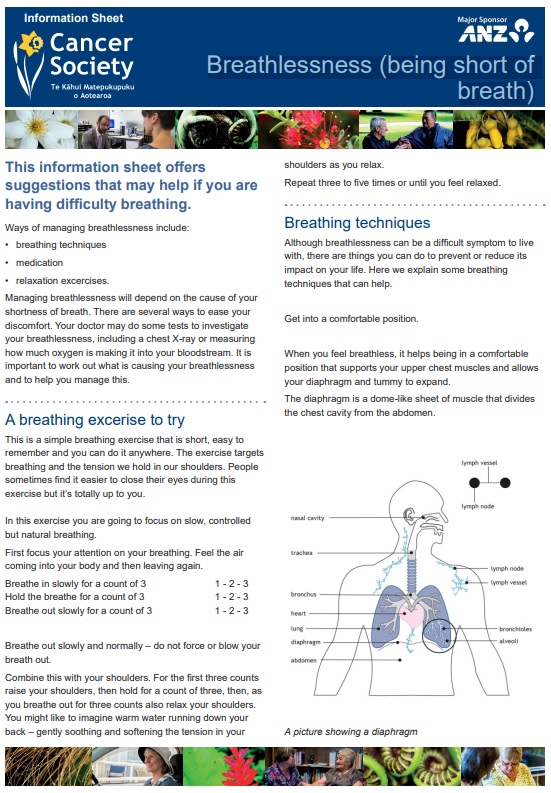It can be difficult to think and talk about the future, but doing this helps you and your carer for being better prepared.
Talking about the future
Talking about the future helps be better prepared for the future. However, having these conversations is not always easy.
It is also useful to talk about having an advanced directive or advance care plan, which can help you decide what to do if you become unwell. Read more about talking about the future with others(external link).
For carers: common changes if the person you care for get sicker
As the condition of the person you care for progresses, you may notice changes in their symptoms and that they can be more difficult to manage. They may also need more support as the condition worsens.
Some of the common changes that you may notice include:
- more breathlessness
- loss of appetite and weight loss
- pain
- tiredness
- difficulty sleeping
- having frequent infections
- more flare-ups, wheezing, chest tightness, phlegm in COPD.
If you are unsure or having difficulties managing any symptoms of someone you care for, talk to their healthcare provider. Sometimes, it may be recommended that they have a respite stay.
For carers: ways to cope with these changes
It may be hard for you to see how things change and how someone you care for gets sicker on a daily basis. It is also common that you as a carer feel drained and upset about what has happened. At times like these, you need to look after your physical and mental wellbeing as the person you care for will require more support from you.
Similarly, the person you care for will also struggle with difficult emotions and slowly withdraw from their daily life as the condition progresses. You can encourage them to talk through their feelings with you, other family members and friends, a trained counsellor or one of the healthcare team members. You can ask their healthcare provider for a referral to a trained professional.
Accessing care and support
Knowing where and how to access care and support is important.
It is common to have more than one healthcare professional taking care a person with breathlessness. Depending on the condition, some of the healthcare team members involved can include:
- a specialist doctor, eg, a respiratory specialist if the condition is COPD or a cancer specialist (oncologist) if it is cancer
- radiologist – a doctor who diagnoses diseases by using imaging such as x-ray, ultrasound scan or CT scan
- specialist nurse, practice nurses or district nurses
- surgeon – a doctor who performs surgery in the operating theatre
- GP
- physiotherapist
- occupational therapist
- psychologist
- palliative care team – the team consists of doctors, nurses, and other allied health professionals to help manage symptoms nearing the end of life that aims to keep patients as comfortable as possible.
For carers: talking to the healthcare team
Sometimes, it may feel challenging to talk to the healthcare team about the person you care for because:
- the needs of the person you care for have not been heard by the healthcare team
- you and the person you care for don't understand what the healthcare team is saying
- you and the person you care for don't want to ask too many questions
- you feel left out about your patient's care (you need to understand that there are things the healthcare team can't talk to you about regarding the person you care for without their permission).
However, to make sure they get the best possible care, you need to understand what the healthcare team is saying and you need to express your concerns and the needs of the person you are caring for.
Here are some tips to help you talk to the healthcare team:
- Prepare a list of questions you or the person you care for may have and bring to their appointment.
- Ask questions – you need to understand what is happening and how you can help.
- Ask questions which are most important first.
- You may need to ask a question more than once to make sure you understand fully.
- You can keep a note or record the conversation during the appointment.
- If the person you care for is receiving palliative care, let all the healthcare professionals involved in their care know so everyone is aware of the type of support they need.
Read more about talking to the healthcare team(external link).
For carers: when someone dies
It can be a difficult time for you when the person you care for dies. You may find it hard to cope with and may experience grief and bereavement.
Common emotions or feelings you may notice include:
- loneliness
- guilt
- shock or numbness
- anger
- fear
- longing
- sadness.
Some of the bodily changes you may also notice include:
- being tearful
- difficulty sleeping
- weight loss or weight gain
- loss of appetite or increased appetite
- tiredness
- lack of energy
- headaches.
These feelings and bodily changes can come on early or later when all the practical matters such as organising a funeral have been done.
You may find it helpful to talk things through to help you manage grief and bereavement. You can talk to your family/whānau, friends or relatives, people in a support group, or a trained professional such as a counsellor.
There are many organisations in New Zealand that provide support, advice and counselling to help those affected by loss and grief, including:
National grief support groups Healthify, NZ
The Grief Centre(external link) The Auckland-based centre provides counselling, support groups and training in the Auckland region, and also has information and resources available on their website
Skylight NZ(external link) Offers grief counselling in some centres and also has information and resources available on their website.
Hospice NZ(external link) ph 04 381 0266
Helplines and local mental health services(external link) Mental Health Foundation, NZ
Talk to your doctor if you have difficulty coping with daily life and you are having these grief feelings longer than expected. Read more about when someone dies(external link) and about grief and loss.









